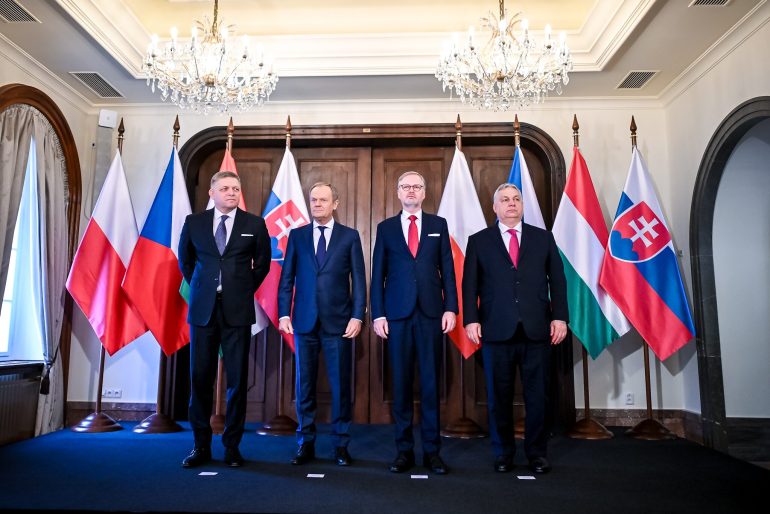On Monday, the Czech Republic handed over to Poland the one-year presidency of the Visegrad Group (V4), a Central European cooperation forum also including Hungary and Slovakia.
The priorities of the Polish presidency of the V4 include public security, strengthening the interconnection of energy, road and digital infrastructure in the region, and cooperation between the V4 countries in the academic, cultural and tourism fields.
“The Visegrad Group should be a tool for cooperation in those areas where the member states have common interests—such as further development of energy and transport infrastructure or greater involvement of European institutions in protecting the Schengen area’s external borders,” the Polish Foreign Ministry said in a statement.
Cooperation between the V4 countries cooled after Russia’s invasion of Ukraine in February 2022, noted the Polish news agency PAP. The four countries are divided on the causes of the conflict and the forms of assistance they are willing to provide to Ukraine. The Czech Republic and Poland are providing military aid to Kyiv, but Hungary and Slovakia do not share this position.
The V4 Battlegroup of the EU, made up of 2,300 soldiers, mostly Polish, began its 12-month combat readiness on 1 July, the Polish Defence Ministry announced on social media. The core of the battlegroup are soldiers from the Polish 6th Airborne Brigade.
According to media reports, the Czech, Hungarian and Slovak contributions to the battlegroup number in the tens of soldiers.
The Visegrad Battlegroup was first placed on combat readiness in 2016. Most recently, it was placed on standby in the first half of last year. In 2004, EU defence ministers agreed to create battlegroups as highly mobile tactical units, capable of undertaking limited-scale operations independently or for use as rapid reaction forces in the event of a crisis.
The Visegrad Group was established in February 1991. It had three members until Czechoslovakia split into the Czech and Slovak Republics in 1993. The group is focused on strengthening stability and cooperation in the Central European region. The presidency lasts for one year, and Poland is now holding it for the 7th time.







